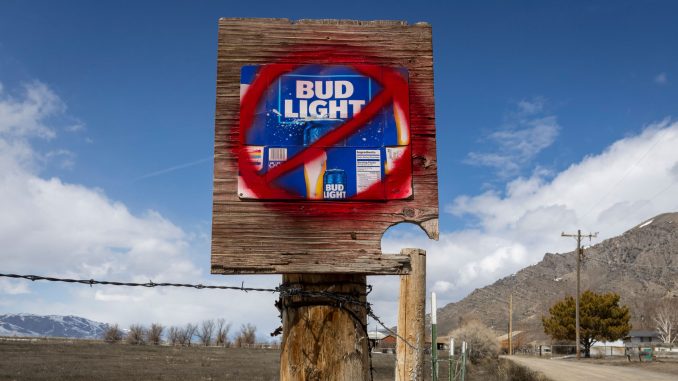
One of the most effective levers of influence in a free market system is the ability for consumers to take their business elsewhere.
When Gillette released a marketing campaign in 2019 designed around criticizing “toxic masculinity,” alienating millions of men around the country, consumers responded by taking their business (about $5 billion of it) elsewhere.
Gillette hasn’t released another anti-male advertisement since, and the political messaging has quietly disappeared from its website.
We’re watching Anheuser-Busch and parent company AB InBev learn the same lesson right now.
After a disastrous Bud Light marketing campaign promoting Dylan Mulvaney’s gender transition, alienating a huge portion of its market and costing then more than $6 billion in market value, Anheuser-Busch placed one of its marketing executives on leave and has embarked on a long road to regain the trust of its former customers.
Why then—after hundreds of cases of sexual assault cover-ups, student abuse, lying administrators and innappropriate curriculums, disparagement, and other problematic actions all too common in American public schools—are parents prevented from wielding that same market influence?
At this point, public schools receive state and federal money whether parents and students attend or not. Regardless of a school’s decisions, whether praiseworthy or horrific, the administrators continue to receive and spend money—all while ignoring parental concerns in the process.
Why should a public school be free of the same opportunities for consequences that we face in society at large? Competition in a market system allows for individuals to attempt to win over the market with better ideas and products. If School A chooses to adopt The New York Times’ deeply flawed 1619 Project as a curricular addition to its social studies department, parents should be able to take their children to School B, which advertises that it doesn’t use historically inaccurate materials.
As Connor Boyack and Corey DeAngelis elaborate in their new book, “Mediocrity: 40 Ways Government Schools Are Failing Today’s Students”:
The government school system is a one-size-fits-all substandard system that will never be able to meet the diverse needs of individual families and their children. Parents may have different ideas about how to raise and educate their children, and the government school system does not provide the flexibility needed to accommodate these differing views. Those wanting something different for their children are compelled to look elsewhere.
— “Mediocrity,” Page 183
“Parental leverage” is already being used in the education private sector. Charter schools that fail to meet the expectations of parents and teachers academically or socially close soon after opening—as parents take their children to schools more competent. Few, if any, charter or private schools that upset their customers (those being parents and students) stay open year after year, as public schools do.
Why do failing charter or private schools close? After parents choose to take their children elsewhere, that money follows the child. Unfortunately, when parents choose to take their children out of a public school, that school still gets a portion of parents’ money via taxes. Imagine the lunacy of choosing to shop at Kroger instead of Walmart, while still sending a bit of your check to Walmart to keep them in business.
Perhaps it’s this lack of power and agency that permits parents to be treated so poorly at public school board meetings. School board administrators look contemptuously from their dais at gathered crowds, condescendingly mocking them as “uncaring” or “bigoted” for disagreeing with the public schools’ methods.
Democrats often bemoan the idea of schools being held to the same measures of accountability that everyone else happily exists under, claiming that rural public schools would cease to exist if they were forced to compete against private options. At the same time, Democrats claim that school choice is unnecessary because our public school options are the best for students and families.
Which is it?
Are public schools good enough to compete on the open market, or is their performance so dismal or unpredictable that students deserve better options?
Public schools being forced to reckon with a group of parents taking their money elsewhere might be their saving grace. Perhaps the fat would be trimmed, useless administrative staff tossed aside, and better resources given to teachers that are doing a good job of educating children. Perhaps schools would be more forthcoming in areas concerning staff hiring and firing and curriculum transparency.
Businesses that suckle at the teat of the state or federal government have neither a need to innovate nor to take the demands of the consumer seriously. Until public schools are forced to play by the same rules that private and charter school options do, we will not see them improve.
Have an opinion about this article? To sound off, please email letters@DailySignal.com and we’ll consider publishing your edited remarks in our regular “We Hear You” feature. Remember to include the url or headline of the article plus your name and town and/or state.

Be the first to comment